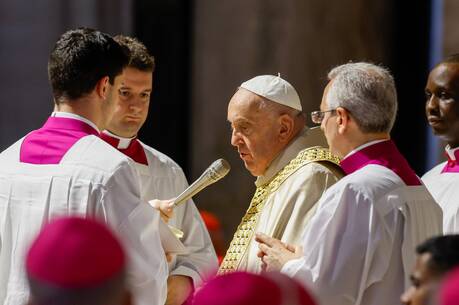There are two times when a political campaign is in most danger of making critical mistakes: first, when a campaign stalls, threatening to go into a tailspin and, second, when a campaign clears a tough hurdle and its self-congratulory sentiments divert it from the next task at hand. Both the Clinton and Obama campaigns showed evidence of these mistakes this week. Clinton was shellacked in the Potomac primary, losing by wide margins and in all demographics. The campaign was clearly stalled. At a time when they needed to avoid going into a tailspin, and re-direct the debate with the voters, they were flooded with stories about the internal convulsions of the campaign. They blamed the voters and the process--pesky caucuses--for what were their strategic mistakes. They began sending out contradictory messages, arguing that they had been prepared "for a bad spell" while firing the campaign manager. Clinton decided she had to go negative and then put up one of the worst negative ads I have seen in years. The anonymous, disembodied voice-over telegraphs that a negative hit is coming and it jars with the sprightly classical music in the background. But, most damningly, the message is terrible: she complains he is not debating him. Is that the chief concern of the downscale white ethnic voters she needs to rally? If you are going to go negative, go negative. Hit Barack as weak on defense. Or do a sustained two week long hit on his connections with the nuclear power company Excelon. But the Clinton campaign is furtive, desperately trying to avoid a fatal mistake that will bring on the tailspin. And that is when you start making the kinds of small mistakes that leads to a slow death by a thousand cuts. Obama’s campaign has been noticeably better than Clinton’s since at least November. So, I was surprised to read that his campaign manager, David Plouffe, told reporters on a conference call Wednesday that "she can’t catch us." Why would you invoke a sense of inevitability? Because it worked so well for Hillary? More importantly, if I am a voter, or more likely a news reporter in Texas or Ohio, why would I warm to being told that my vote will not matter, that the race is over. "This is not about votes – it’s about delegates," Plouffe said, in words that could come back to haunt him is the race for delegates remains tight and the Obama campaign must argue that it would be a sham for super-delegates to over-turn the electorate’s verdict. The impressive wins on Tuesday, in fact, may have sealed the deal, but there was no good reason for Obama’s campaign manager to say so. So everyone is waiting for the fat lady to sing. Another blowout for Obama in Wisconsin next week could do it. It is not a good sign for Hillary that a handful of super-delegates previously pledged to Clinton have withdrawn their endorsement and now back Obama, most notably Georgia congressman and civil rights icon John Lewis. But we are also at that stage of a campaign when desperation and hubris affect political judgment and no one should be counting chickens. Michael Sean Winters
The Psychology of Losing
Show Comments (
)
Comments are automatically closed two weeks after an article's initial publication. See our comments policy for more.
The latest from america
“It was a long time I wanted, desired, to be with them, to meet them,” Cardinal Pizzaballa, the Latin patriarch of Jerusalem, said of his visit to the resilient parish. “Now I had this possibility and am very happy.”
This week on "Inside the Vatican," hosts Colleen and Gerry discuss Pope Francis’ proclamation of Jubilee Year 2025 and also review a global synod meeting of 200 parish priests held outside Rome earlier this month.
The Catholic Church has communicated with its flock throughout the centuries by means of papal bulls. But what on earth is a papal bull?
A Homily for Pentecost, by Father Terrance Klein







